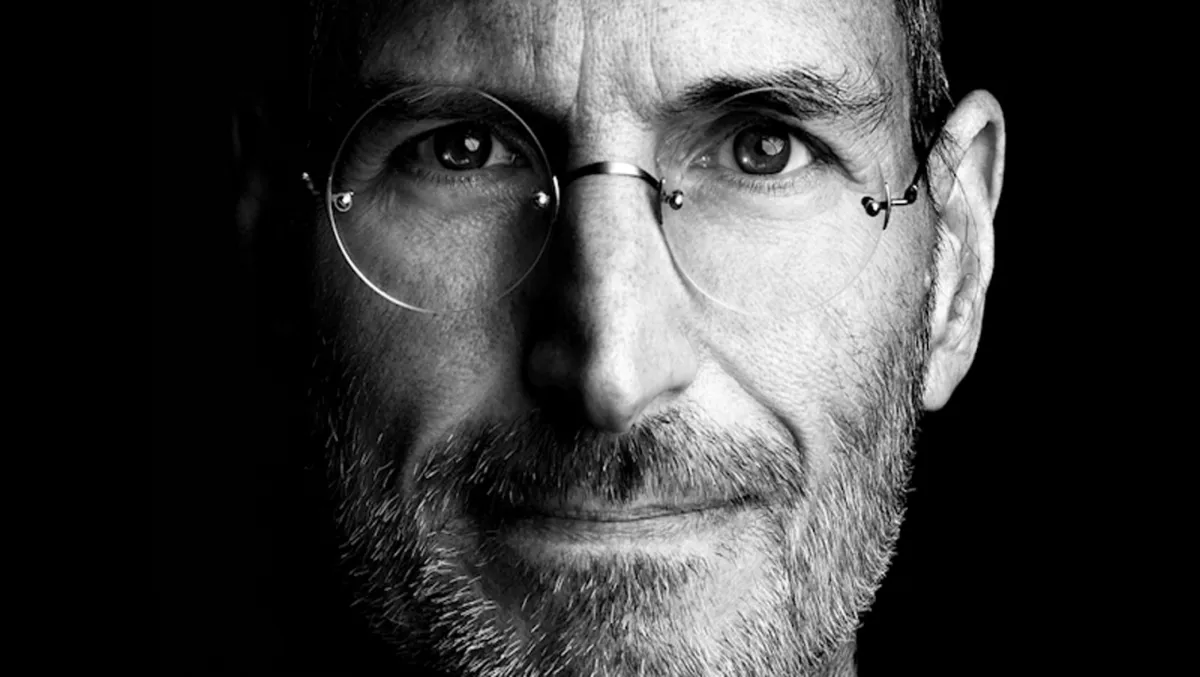
JOBS: Playing the Part...
Indeed, it’s hard to imagine a world without the conveniences made possible by Apple products and the copycat devices they have inspired.
Dermot Mulroney (The Grey), who plays the role of early Apple investor Mike Markkula, says he took pains to dramatise that reality in his first scene in the film.
It’s a scene where he arrives at the Palo Alto garage that became, with Markkula’s backing, the birthplace of Apple and the personal computer industry.
“The very first scene I do, they make this character look really rich,” Mulroney says. “He drives up in a gold Corvette and a dollar bill-green-colored suit
" But the morning of the shooting I’m thinking, how would you find somebody’s house in 1977? You can’t look it up on your GPS, right? So I have a FiloFax type of book and a map.
"That was just my little tip of my hat to how things used to go. I wanted to be pulling up into his front yard with the old version of how you found somebody’s house.”
Hulme says perseverance and tenacity are what Jobs will be remembered for-both of which he possessed in spades. Stern agrees.
“The film is about a young man struggling against all odds to fulfill a vision for something that did not exist, an idea that did not exist, and he did not stop thinking of that idea for 20 years until it did,” the director says.
But no film portrayal of Jobs would be accurate without also exploring the man’s darker side. Whiteley says that greatness of the kind Jobs embodied always comes with sacrifice-and, in this case, it was Jobs’ personal relationships that suffered.
“He was never really out to hurt anyone,” Whiteley says. “You just couldn’t stand in his way. He wouldn’t stand for it. If you weren’t seeing what he was seeing, you were just slowing him down. And yes, people got hurt.
"Friendships lost, relationships ruined, but if you could understand his way of operating, and find your niche within that vision, you would be there for a long time.”
That willingness to sacrifice personal bonds even extended to Jobs’ early relationship-or lack thereof-with his first daughter, born to a girlfriend he had already excised from his life.
“He abandoned her for years, and denied paternity even after courts proved it with 95 percent certainty,” says Whiteley, who dramatises the conflict to powerful emotional effect in the script.
Stern says Jobs had difficulty connecting with people in general-a trait that sometimes made him appear ruthless to others.
“He was a fundamentalist,” the director says. “He was black and white, and human beings are grey. They’re in the middle, and he couldn’t see that. He couldn’t see nuance.
"I actually think he couldn’t read pain in people’s faces. I don’t think he was trying to be mean. I just don’t think that he had that ability to see that that person was hurting.”
A key aspect of Jobs’ life that underlies much of the film was how he dealt with being put up for adoption by his biological parents. “Steve always searched for father figures-always felt abandoned on some level by a father,” Stern says.
Perhaps related to that, Kutcher observes, was Jobs’ never-ending search for a creative partner he could trust-be it engineering genius Steve Wozniak (played by Josh Gad), investor Mike Markkula (Mulroney) or marketing virtuoso John Sculley (Matthew Modine).
“All three represent different aspects of that, and somewhere along the way it didn’t work out with each of them, to put it mildly,” Kutcher says.
“We all spend our lives looking for partners to make great things with and, as a sort of backbone of this movie, you’ve got a guy who wants to create something, who wants to change the world, who wants to make a difference, and is looking for the partner to do that with.”
Modine (The Dark Knight Rises), who plays Sculley in the film, says Jobs learned to roll with punches that would have crushed lesser mortals-adding that the decision to cast Kutcher in the role of Jobs was “a fantastic choice.”
“I don’t know who came up with the term ‘pivot,’ which obviously means to turn and change directions, but Steve Jobs was somebody who mastered the pivot,” Modine says. “When things didn’t work out well, from the time he was unceremoniously invited to leave the company he created, to when he went to Pixar, he pivoted.”
Jobs’ pivots sometimes left others in the dust, notably Sculley-the man behind Apple’s groundbreaking “1984” TV commercial. Modine, who met Sculley in person, says Sculley is still troubled by the way his relationship with Apple came to such an abrupt end.
“Because of his personality and the way that he functioned, when Steve Jobs felt betrayed and that he had no more use of someone, he would discard them, would pull them out like a tooth and toss them away,” Modine says.
“And sometimes he pulled out teeth that were very healthy.”
Set for release in New Zealand on August 29, for more information click here

